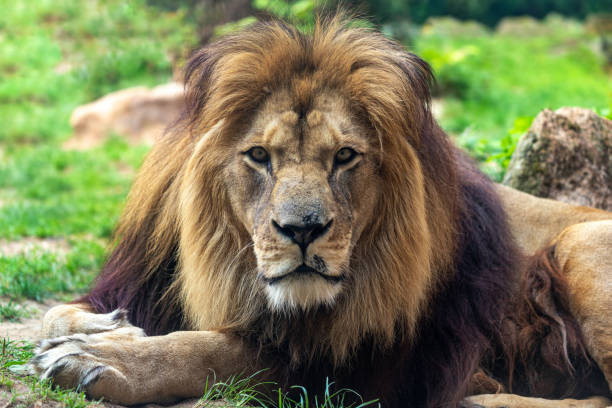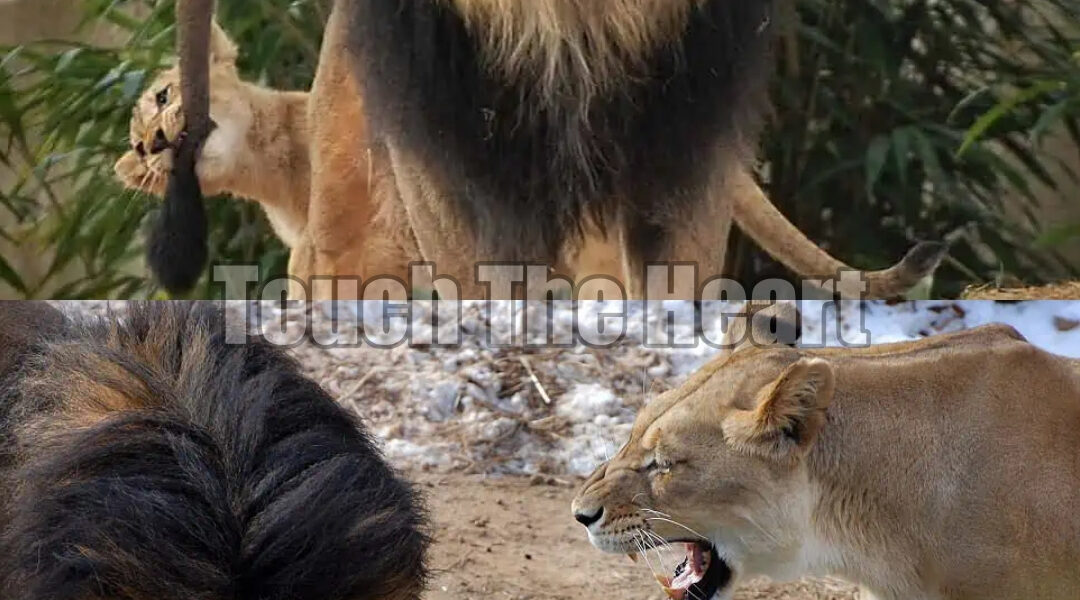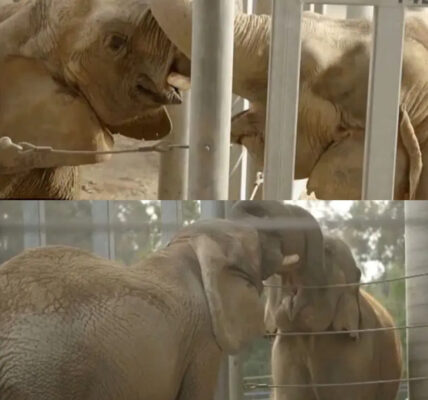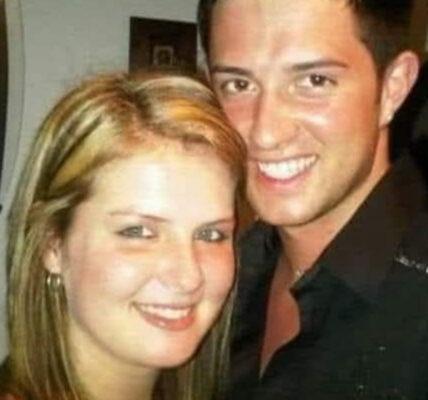He was the king — the one the world expected to fear, admire, and bow to. His roar shook the ground, his presence silenced the grass, and every creature in his territory understood one law: step lightly around the lion.

But inside the quiet boundaries of a zoo enclosure, behind the glass and fences that separated wild from human eyes, something happened that reminded everyone — even a king can be brought to his knees by the ones he loves.
His name was Luke — a full-grown male African lion, a father of seven, a giant built of muscle, instinct, and authority. Tourists who came to the National Zoo in Washington D.C. saw him as a symbol of power: the mane, the golden stare, the slow, commanding pace that made it clear he never needed to rush.
But his cubs did not see majesty.
They saw a playground.

They saw a tail to chase, paws to climb, a giant chest to pounce on. And among the cubs, one in particular — a bold, fearless little lioness named Lusaka — had decided that the best game in the world was biting her father’s tail and running before he could react.
Again and again, she tugged. Again and again, Luke ignored her, pretending the same way human fathers pretend not to notice little hands stealing their hat, their glasses, their patience.
For a while, it was harmless fun.
But cubs, like children, don’t always know when the line is crossed.
And fathers — even gentle ones — sometimes snap without meaning to.
So on that quiet afternoon, with sunlight stretching across the enclosure and families watching from behind the railing, Lusaka bit the tail one time too many. Luke turned, growled playfully, and pinned her with a giant paw — not to hurt her, not to punish her, just to show her who was stronger.
It lasted only seconds.

But that was enough for someone else to notice.
There was a rustle from the far side of the rock wall. A shape rose from the shade — not large like the male, not loud like a roar, but powerful in a different way entirely.
The lioness was coming.
Her name was Naba — mother to the cubs, mate to Luke, queen not by dominance but by responsibility. And from the moment she saw her daughter pinned beneath the weight of the father — even in play — something fierce and ancient ignited inside her.
She did not hesitate.
She did not pause to think whether the cub was hurt, whether Luke meant harm, whether she might be overreacting.
She simply charged — a blur of muscle and instinct, a mother defending her child in the only language the wild respects.
What happened next stunned everyone watching.
Luke — the lion who could tear a zebra down in seconds — backed away.
Not in fear of being attacked.
Not because she was stronger than him.

But because in that moment, authority meant nothing beside motherhood.
He lowered his head.
He stepped away from the cub.
He accepted the reprimand without protest — the way a father lowers his voice when a mother says, “Enough.”
The cub, freed, scrambled back behind her mother’s legs, wide-eyed but unharmed. The lioness stood over her like a shield, tail stiff, eyes locked on Luke with a message no one needed words to understand:
She is not your prey. She is your daughter.
Luke blinked, licked his paw, pretended to be distracted by something in the distance — the oldest trick in the world, used by every father, human or animal, when he’s been scolded and doesn’t know how to recover.
Visitors laughed — softly, tenderly. Because suddenly, this wasn’t wildlife behind glass.
This was a family.
A father who played too rough.

A mother who stepped in too fast.
A child who never realized how close she’d come to getting in trouble.
A scene so familiar that it didn’t belong to lions alone — it belonged to every household, every playground, every memory of childhood.
Even the photographer, Jennifer Lockridge, who captured the moment, said later:
“It felt like I was watching a human argument — the cub bothering dad, dad reacting, mom swooping in to defend.”
Because nature, in its wildest forms, still reflects us.
The lioness didn’t roar. She didn’t hurt Luke. She just stood there, steady and unmovable, embodying the one truth that every species knows:
You can be king of the world —
but you will never outrank a mother protecting her child.
.jpg/250px-Lion_(15433888440).jpg)
For minutes, no one moved. Then slowly, the tension eased. The cub began to play again. The mother relaxed. And Luke — still pretending he wasn’t embarrassed — lay down a short distance away, choosing peace over pride.
But something had changed.
The cub now stayed closer to her mother.
The lioness kept one eye on Luke, one on her child.
And Luke — perhaps for the first time — seemed to realize that power wasn’t just a matter of strength.
It was a matter of trust.
He wasn’t just a predator.
He wasn’t just the lion with the deepest roar.
He was a father — one still learning who he had to be in a world where love could come in the form of a warning growl.

Hours later, when the zoo closed and visitors walked away, the story stayed. It lived through the photos. It lived through the whispers. It lived because the wild — even inside fences — still teaches lessons the world forgets:
That strength is not always loud.
That love is not always gentle.
And that sometimes, the bravest thing a king can do…
…is step back.
The pictures spread online — a lion cowering, a lioness scolding, a cub running free — and people laughed, shared, commented. But beneath the humor, something deeper moved:
A reminder.
That in every family — animal or human — the roles we play may change, but the love behind them does not.
The father learns.
The mother protects.
The child grows.
And the world keeps watching — not because of the roar…
…but because of the tenderness hidden inside it.




